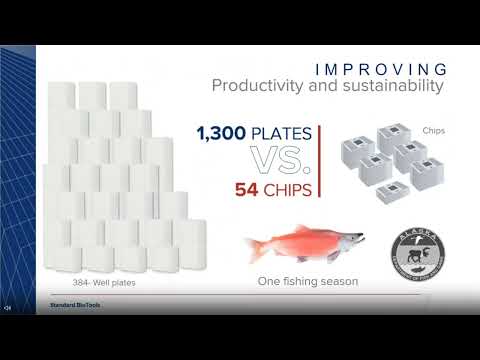Description:
Explore high-throughput qPCR microfluidics technology with singleplex accuracy for plant and animal genomics in this 45-minute webinar presented by Dr. Naveen Ramalingam, Senior Director of Assay Development at Standard BioTools™. Learn how microfluidics qPCR technology enables massively parallel reactions using a single color, offering sensitivity comparable to standard thermal cycler workflows while saving costs and simplifying high-throughput processes. Discover the advantages of this technology in overcoming limitations of traditional multiplex qPCR, including the ability to screen more than 10 pathogens or SNPs in a sample. Gain insights into the system's performance, its applications in plant breeding, animal health, and pathogen detection, and how it improves productivity and sustainability in various genomic studies. Understand the workflow improvements, from sample processing to result generation, and how this technology can generate 9,216 qPCR results in just 4 hours.

High-Throughput qPCR Microfluidics Technology with Singleplex Accuracy for Plant and Animal Genomics
Add to list